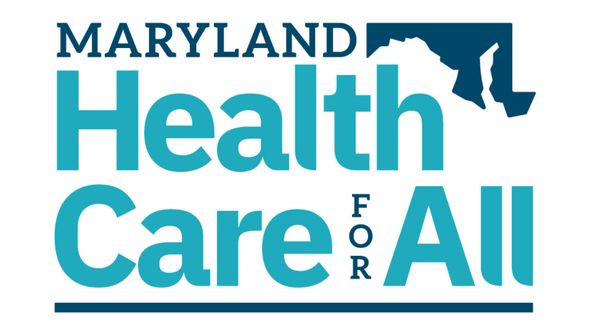Inside Health Policy
November 1, 2018
By: Rachel Cohrs
State lawmakers in Maryland and Minnesota are planning to revamp and reintroduce legislation that would create rate-setting commissions for prescription drugs after bills in both states died last session. New Jersey lawmakers also have introduced bills that are still pending for the state’s 2018-2019 session. Brand drug manufacturers oppose rate-setting legislation, and fought to kill Maryland’s proposal.
The rate-setting bills were based on model legislation published by the National Academy for State Health Policy. The NASHP model legislation provides an outline for states to create a drug cost review commission that would function similarly to a public utility commission. The commission would have authority to establish payment ceilings for high-cost drugs. The outlined commission would not regulate prices, but instead would address how much agencies and health plans in the state could pay for certain highly priced drugs.
Of the seven states that introduced some kind of rate-setting bills this year, Maryland’s got the farthest, according to an analysis by The Source on Healthcare Price and Competition blog.
Maryland could be a strong candidate to establish a rate-setting commission because it already has a Health Services Cost Review Commission that regulates hospital rates for inpatient, outpatient and emergency services. That commission was created by the state legislature in 1971. A scaled-back version of the NASHP rate-setting commission template passed the Maryland House of Delegates last session, but did not come to a vote in the state senate.
Vincent DeMarco, the president of the progressive health care affordability advocacy group Maryland Citizens’ Health Initiative, said the group pushed for the rate-setting proposition in Maryland and is working closely with Jane Horvath, a consultant who drafted the NASHP template, to address lawmakers’ concerns. The group also plans to redub the proposed commission a “prescription drug affordability commission” instead of a “rate-setting commission.”
“We built a powerful coalition, and we made a strong case, but it was a heavy lift for the first time we proposed something,” DeMarco said.
A majority of lawmakers in the Maryland House of Delegates and one short of a majority in the Maryland state Senate cosponsored the rate-setting legislation last session. But after strong opposition from drug manufacturers, the House of Delegates passed a compromise version of the bill that took rate-setting authority away from the commission and instead only would have allowed it to review data, release an annual report on pricing trends and recommend policy options to decrease prices.
The opposition is not deterring Delegate Joseline Peña-Melnyk, a Democrat, from re-introducing a version of the bill next session. She said that she is open to making some changes to the bill, but that the rate-setting authority will not be watered down.
“I’m going forward with the whole enchilada,” Peña-Melnyk said.
Advocates for the commission believe there is reason for optimism. If she is re-elected, Peña-Melnyk will be the vice chair of the House of Delegates committee on health and government operations next session, and state Sen. Katherine Klausmeier announced her commitment to be the bill’s lead senate cosponsor on Monday (Oct. 29).
Democratic gubernatorial candidate Ben Jealous said he supports a rate-setting commission, while Republican Gov. Larry Hogan’s campaign said he would work with DeMarco on drug pricing without explicitly endorsing a rate-setting commission.
Drug manufacturers were staunchly opposed to Maryland’s bill, and the Pharmaceutical Research and Manufacturers of America lobbied against it. Peña-Melnyk expects the group to oppose the next iteration of her bill as well.
“Proposals that would implement price controls do not put patients first or make the health-care system work better for them. Dangerous price controls are merely a retread of failed policies and political talking points that won’t address the affordability challenges patients are facing and could potentially limit their access to the medicines they need. These proposals also threaten our ability to find new and better treatments for disease,” a spokeswoman for PhRMA told Inside Health Policy in a written statement.
It is not yet certain how many states will consider rate-setting commissions next session. New Jersey has active rate-setting commission bills for the 2018-2019 two-year legislative session, both of which are still in committee. The state is home to the global headquarters of pharmaceutical giants Johnson and Johnson and Merck. Assemblyman and Deputy Speaker Paul Moriarty, a Democrat, said he is not changing his bill from previous sessions. He said he has heard more conversations among fellow lawmakers about drug pricing issues this session than before.
“We have more wind behind our sails, and we are optimistic,” Moriarty said.
A health care task force in Maine of lawmakers and stakeholders discussed the idea and recommended that Maine lawmakers study the idea further instead of introducing legislation next session.
Minnesota lawmaker state Sen. Scott Jensen, a Republican, plans to mirror Maryland and reintroduce his bill to create a prescription drug rate-setting commission. Jensen is the vice chair of the state Senate Health and Human Services Finance and Policy Committee, but his bill did not get a committee hearing last session. He said though the bill did not get far, it started dialogue on the topic.
“If they would give us a once-over seriously, we could make it better, so I plan on re-jacketing it,” Jensen said.
Jensen said he plans to keep the rate-setting authority for the committee in the bill.
“The Declaration of Independence calls for these truths to be self-evident, that we are entitled to life, liberty, and the pursuit of happiness. If I can’t get a hold of drugs I need to live without paying $10,000, that isn’t tenable for me,” Jensen said.
Last modified: November 1, 2018


